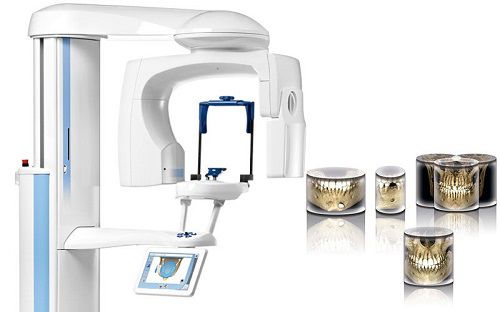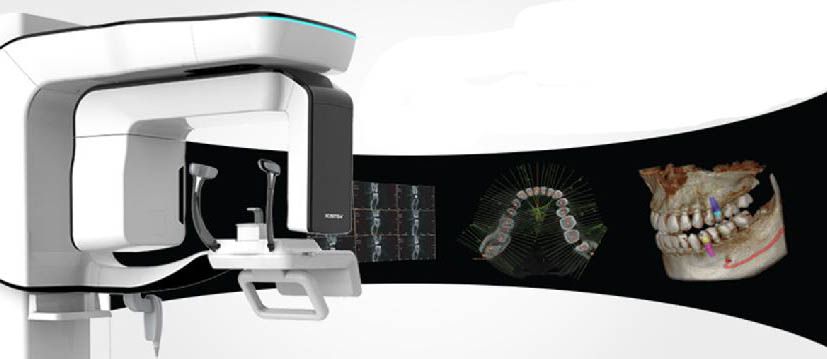Dental CT Scans Torrevieja Spain

Dental CT Scans: A Comprehensive Guide to Understanding Their Importance
In the field of dentistry, technological advancements have significantly improved the way oral health conditions are diagnosed and treated. One such innovation that has revolutionized the dental industry is Dental CT Scans. These scans provide highly detailed 3D images of the teeth, jaw, and surrounding structures, allowing dentists to accurately diagnose various dental conditions. In this article, we will explore the significance of Dental CT Scans and their role in modern dentistry.
Dental CT Scans: An Overview
Dental CT Scans, also known as Cone Beam Computed Tomography (CBCT), are specialized imaging techniques that use a cone-shaped X-ray beam to capture detailed images of the oral and maxillofacial region. Unlike traditional dental X-rays, which provide a limited view of the mouth, CT scans offer a comprehensive and three-dimensional representation of the teeth, jawbones, sinuses, and nerve pathways.
The Importance of Dental CT Scans
Dental CT Scans play a crucial role in various aspects of dentistry, including:
-
Accurate Diagnosis: By providing detailed images, CT scans enable dentists to accurately diagnose dental conditions such as impacted teeth, infections, tumors, and jawbone abnormalities. This precise diagnosis allows for targeted and effective treatment planning.
-
Treatment Planning: CT scans provide dentists with vital information about the position and orientation of teeth, the density of the jawbone, and the proximity of nerves and blood vessels. This information is crucial for planning complex procedures such as dental implant placement, orthodontic treatment, and oral surgeries.
-
Evaluation of Jaw Joints: CT scans can help dentists evaluate the temporomandibular joints (TMJ) for conditions like temporomandibular joint disorder (TMD). These scans reveal any joint abnormalities, inflammation, or degenerative changes that may contribute to jaw pain and dysfunction.
-
Assessment of Sinuses: CT scans capture detailed images of the sinuses, enabling dentists to identify conditions such as sinus infections, polyps, or tumors. This information is particularly important when planning procedures that involve the sinus area, such as sinus lifts for dental implants.
-
Detection of Pathologies: Dental CT Scans can aid in the early detection of oral pathologies, including cysts, tumors, and infections. Early detection allows for timely intervention, increasing the chances of successful treatment outcomes.
The Process of Dental CT Scans
Dental CT Scans are quick, non-invasive, and painless procedures. Let's walk through the typical process involved:
-
Patient Preparation: Prior to the scan, patients are required to remove any metal objects, such as jewelry or eyeglasses, and wear a lead apron to protect against unnecessary radiation exposure.
-
Scan Acquisition: The patient is positioned in the CT scanner, which resembles a large donut-shaped machine. The scanner will rotate around the patient's head, capturing a series of X-ray images from different angles. The entire process takes about 10 to 20 seconds.
-
Image Reconstruction: Once the scan is complete, advanced computer software reconstructs the captured images into a three-dimensional representation of the patient's oral and maxillofacial structures. Dentists can then analyze the images on a computer screen for diagnosis and treatment planning.
Frequently Asked Questions (FAQs)
FAQ 1: Are Dental CT Scans Safe?
Yes, Dental CT Scans are considered safe. The level of radiation exposure from a dental CT scan is relatively low compared to other medical imaging techniques. Additionally, modern CT scanners are designed to minimize radiation dosage while still providing high-quality images.
FAQ 2: How Long Does a Dental CT Scan Take?
The actual scanning process for a dental CT scan typically takes only 10 to 20 seconds. However, the overall appointment duration may vary depending on factors such as patient preparation and image reconstruction time. On average, patients can expect the entire process to last between 15 to 30 minutes.
FAQ 3: Are Dental CT Scans Expensive?
The cost of a dental CT scan can vary depending on various factors such as location, dental office, and insurance coverage. However, compared to the invaluable diagnostic information and treatment benefits they provide, dental CT scans are generally considered a worthwhile investment in oral health.
FAQ 4: Can Anyone Get a Dental CT Scan?
Dental CT scans are typically recommended in cases where traditional dental X-rays are insufficient or when detailed information is required for accurate diagnosis and treatment planning. Your dentist or oral healthcare provider will determine whether a dental CT scan is necessary based on your specific dental condition.
FAQ 5: Are Dental CT Scans Covered by Insurance?
Insurance coverage for dental CT scans varies among insurance providers and plans. Some dental insurance plans may cover a portion or the full cost of the scan, while others may consider it an out-of-pocket expense. It is advisable to check with your insurance provider to understand your coverage and any associated costs.
FAQ 6: Are Dental CT Scans Available Everywhere?
Dental CT scanners are becoming increasingly common in dental practices worldwide. However, the availability of dental CT scans may vary depending on the location and the specific dental clinic or facility. It is recommended to inquire with your local dentist or dental specialist regarding the availability of dental CT scans in your area.
Dental CT Scans, with their ability to provide highly detailed and comprehensive images of the oral and maxillofacial region, have revolutionized modern dentistry. These scans play a vital role in accurate diagnosis, treatment planning, and the evaluation of various dental conditions. With their numerous benefits and growing accessibility, dental CT scans are poised to continue shaping the future of oral healthcare.
Contact Information:
| Torrevieja, Pasaje Pais Vasco, edificio 1 local 4 | |
| +(34) 638 893 141 | |
| +(34) 638 893 141 | |
| apdenta@gmail.com | |
| Working hours: Mon - Fri: from 10:00 to 20:00 |


